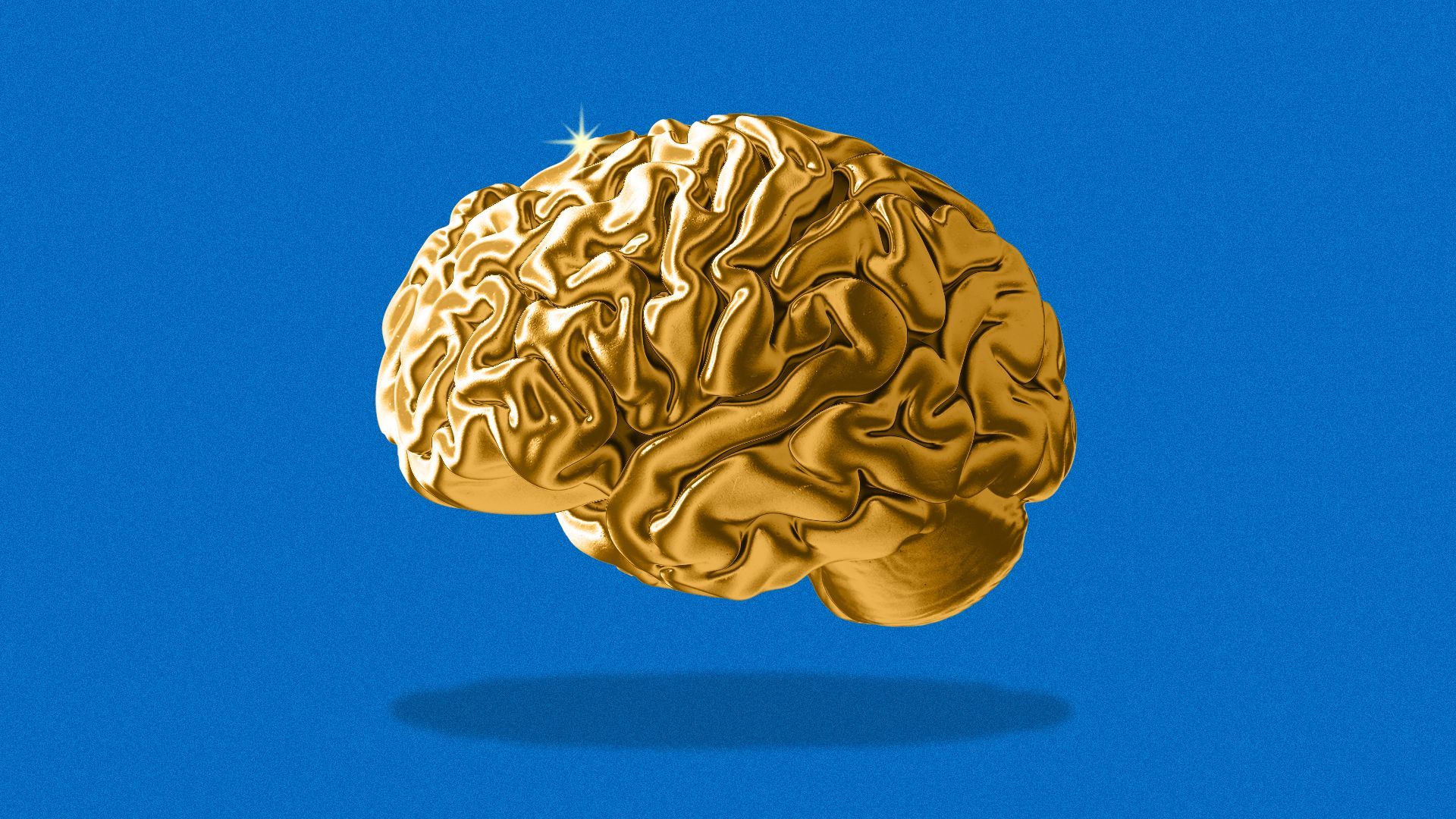Exclusive: Motif inputs $19M for depression treatment device

- Erin Brodwin, author ofAxios Pro: Health Tech Deals

Illustration: Brendan Lynch/Axios
Motif Neurotech, a developer of brain stimulation devices for depression, raised $18.75 million in Series A funding, CEO Jacob Robinson tells Axios exclusively.
Why it matters: The most widely-available depression treatment is selective serotonin re-uptake inhibitors (SSRIs), but as many as one-third of people don't respond to the drugs. For them, there's hope that electronic stimulation can help.
How it works: The Houston-based company is developing a device that would emit pulses of electrical stimulation to the brain in an effort to restore promote normal activity, similar to how transcranial magnetic stimulation (TMS) works.
- In contrast to TMS, which requires trips to specialized centers to receive treatment, Motif's approach would involve a device implanted near the surface of the brain in a 20-minute outpatient surgical procedure.
- Depending on the results of its first study, Robinson envisions Motif's device being worn in one of two scenarios: Either for 20 mins a day for about six weeks, or for eight hours a day for a week.
- Robinson envisions the device being reimbursed by insurance.
Details: Arboretum Ventures led the round.
- New investors KdT Ventures, Satori Neuro, Dolby Family Ventures, re.Mind Capital participated, alongside existing backers Divergent Capital, TMC Innovation, PsyMed Ventures, Empath Ventures and Capital Factory.
- Funds will be used to bring Motif's leading technology, a miniature implantable brain stimulator called DOT, into a first clinical study for patients whose depression doesn't respond to antidepressants.
- Satori Neuro's Amy Kruse and Arboretum Ventures' Tom Shehab are joining Motif's board of directors.
- Robinson foresees Motif raising a Series B after it receives data back from its first clinical study.
Flashback: "I was an academic with an idea on a blackboard in a lab 10 years ago," says Robinson, who came up with the concept of Motif at Rice University.
What they're saying: "There's still a perception that an implant is not what we do for mental health. The same was true for pacemakers," says Robinson.
- "When we normalize the idea of devices to help us with other conditions like mental health, something like this can become first and second line therapy."
The intrigue: Even minor surgery could function as a hurdle for potential Motif patients, and that's something investor and Arboretum managing partner Shehab doesn't "take lightly."
- "There are so many patients across treatment-resistant depression (TRD) and other indications, we felt that a minor outpatient procedure, while significant, would not limit the uses of this," Shehab says.
- Part of Shehab's rationale for that is Motif's potential convenience — "this can be managed by patients and providers and the patient can do the vast majority of the treatment at home," he adds.
- Plus, relapse is common among patients with severe depression, and Shehab sees Motif's device as having the potential to help treat those episodes too.
1 fun thing: The name Motif is a nod to the company's goal of stimulating patterns — or motifs — across the brain.
- "It's part of the idea of being a network interface," Robinson says.